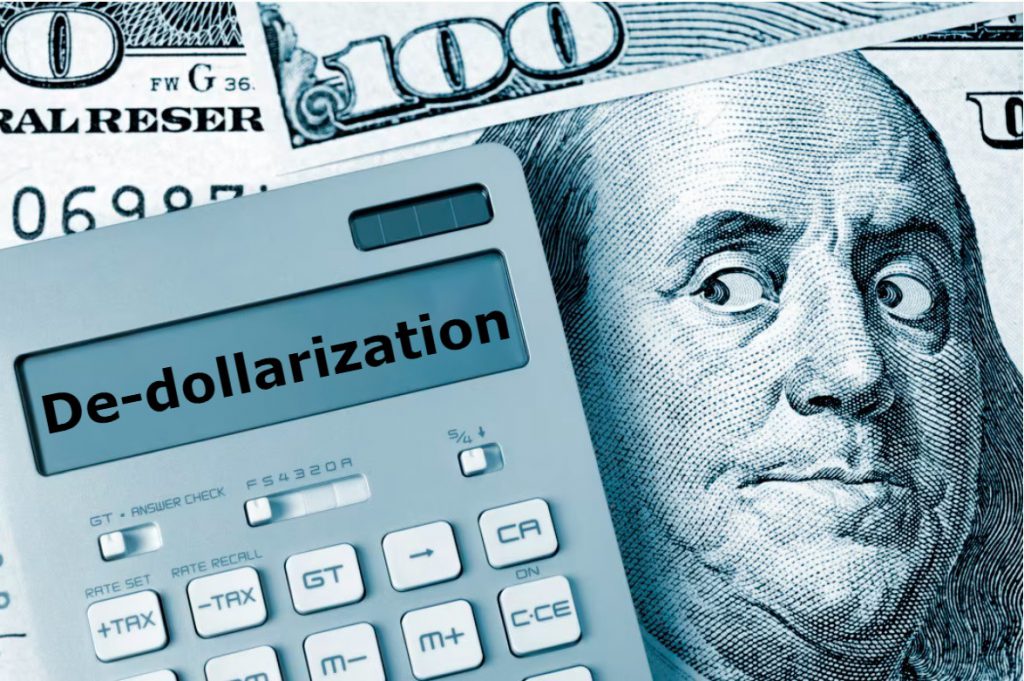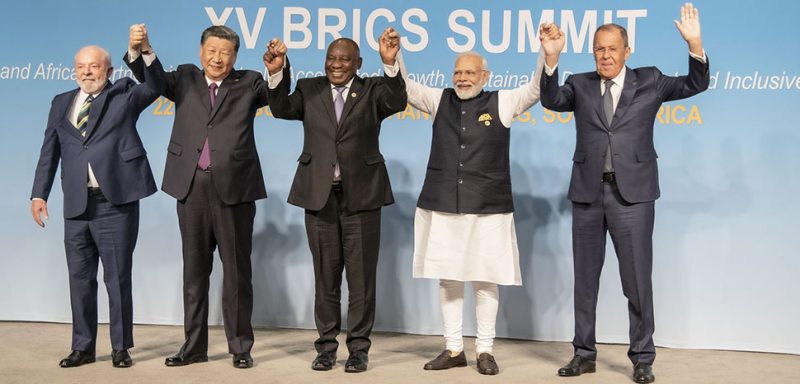The BRICS alliance is looking to bypass the Western SWIFT system and replace it with its own financial mechanism. The creation of a new financial messaging system similar to SWIFT will allow BRICS to reshape the global trade landscape.
The majority of cross-border transactions are now settled using SWIFT and cutting ties with the system provides leverage to the nine-member alliance. BRICS can create a new payment system without incorporating the US dollar for transactions.
Also Read: India Wants New BRICS Payment System To Bypass US Dollar
Local currencies will be used for trade settlements ending reliance on the US dollar once and for all. The BRICS payment system similar to SWIFT can break the global dominance of the US dollar. Read here to know how many sectors in the US will be affected if BRCS ditches the dollar for trade.
Also Read: BRICS: Top Analyst Predicts U.S. Dollar Collapse
BRICS Challenging The SWIFT Payment System


Russia confirmed that the BRICS alliance plans to build a new payment system similar to SWIFT. “The financial agenda of BRICS has a main initiative for building a new economic reality that solves both major tasks. Creating our own financial messaging system for the BRICS countries, similar to SWIFT, based on state-owned banks capable of clearing settlements of counterparties from the BRICS countries and the related role of the same bank,” said Deputy Chairman of the Russian State Duma Alexander Babakov.
Also Read: US Dollar Shows No Mercy To BRICS Nations’ Currencies
The ambassador said that creating an alternative to SWIFT is necessary for BRICS to push the de-dollarization agenda ahead. “It is necessary to create a new system of financial institutions. The new system must be technically compatible with the existing financial infrastructures of the participating countries, which includes integration with national payment systems, banks, and other financial institutions. At the same time, the system must ensure a high level of security and data protection to prevent cyber-attacks and unauthorized access to financial information,” he summed it up.





